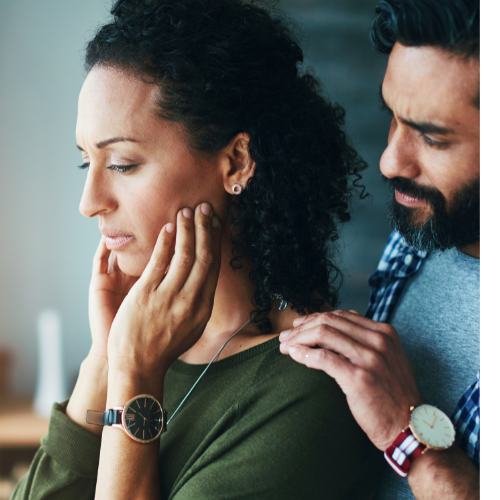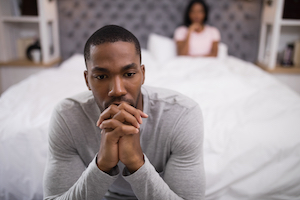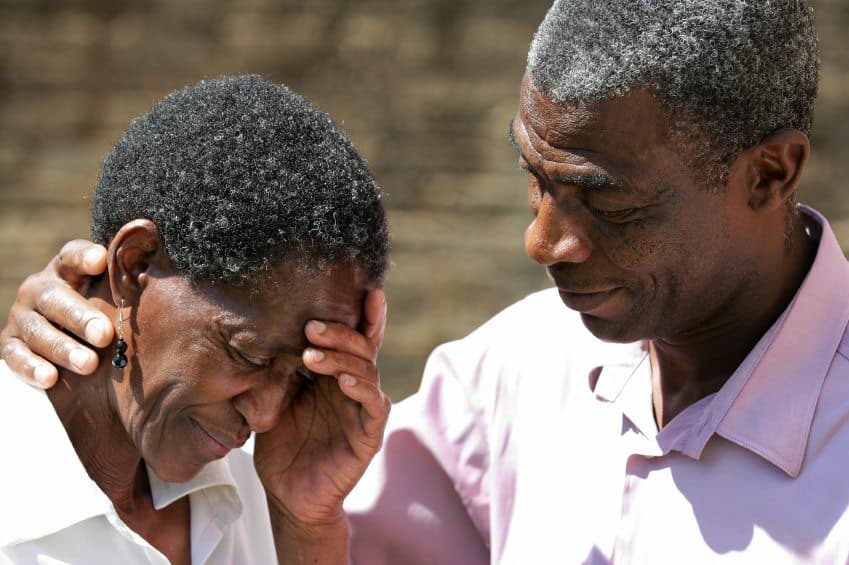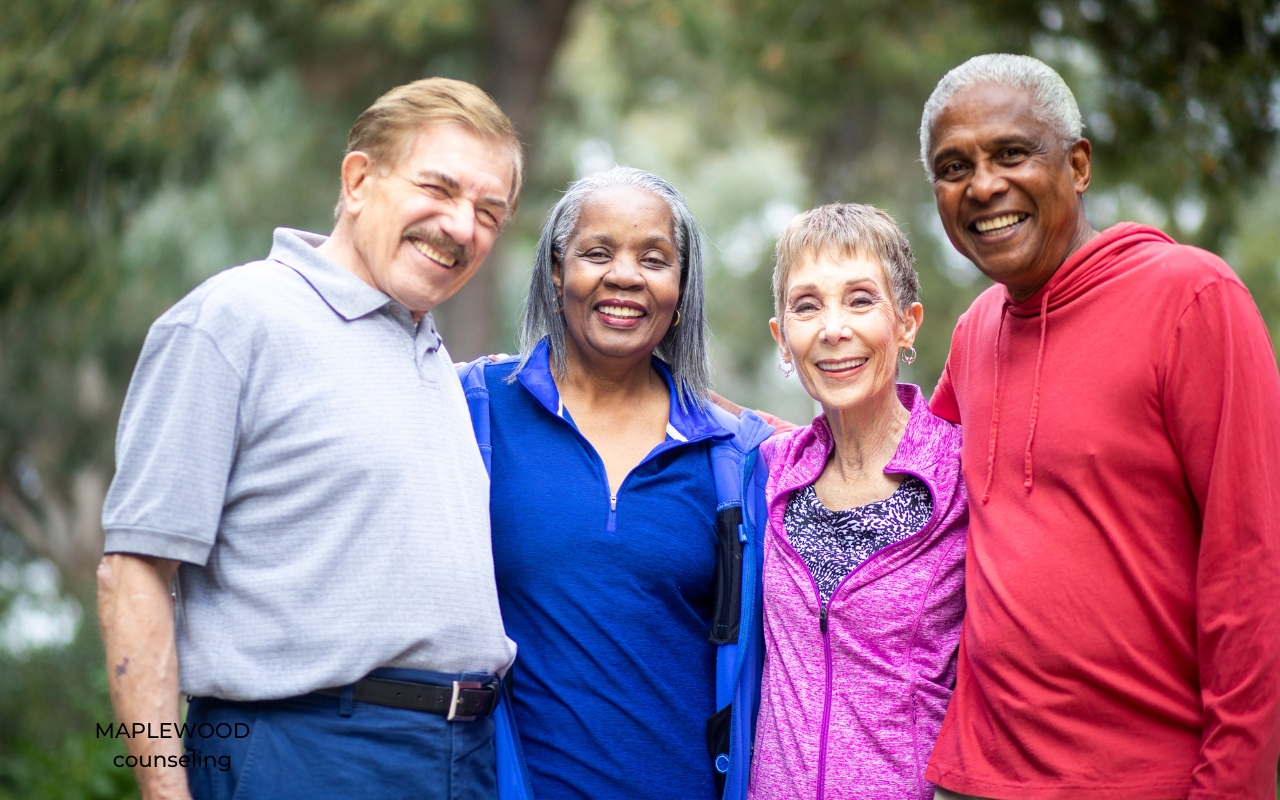
Apologizing Heals Relationships | What Makes An Apology Hard?
Apologizing Heals Relationships
What Makes An Apology So Hard for Some?
Apologizing Can Build Stronger Relationships
But What Gets in the Way of the Ability to Apologize?
An apology can transform any relationship —whether with a partner, a co-worker, or a close friend. Even though apologizing can be transformative, it is not easy for many to do. See what makes it hard and what will help is building stronger connections and relationships through a genuine apology.

From Conflict to Connection: How Apologizing Can Heal Relationships
But what makes apologizing so hard?

Why Apologizing is Hard for Some People
The act of apologizing is a vital component of any healthy relationship, whether personal or professional. It’s an acknowledgment of wrongdoing and a sincere attempt to repair any harm caused. But why do some people find it so challenging to say “I’m sorry”? Understanding the barriers to apologizing can pave the way for stronger connections and tremendously aid personal growth.
Psychological Reasons for Difficulty in Apologizing
When it comes to apologies, psychological hurdles are often the toughest to overcome. Two common fears come into play: the fear of vulnerability and the fear of judgment.
Fear of Vulnerability
John loved his brother deeply but found it arduous to apologize after their heated arguments. For him, saying sorry was like opening a door to his armor, and he couldn’t shake the worry of being hurt.
Showing vulnerability can be scary. It requires one to let down their guard and accept the possibility of being hurt or rejected. There’s emotional exposure in acknowledging that one has erred, which for some is akin to displaying weakness.
Fear of Judgment
Emily hesitated to apologize to her coworker. She didn’t want to appear incompetent or become the subject of office gossip.
The dread of being judged can immobilize individuals from apologizing. There’s a tangible fear that admitting a mistake might lead to being branded as flawed, incompetent, or worse.
Protecting Self-Image
Alex’s pride made it hard to admit to his spouse that he was wrong, as it clashed with his image as the “problem solver” of the household.
For many, there’s a fierce defense of one’s self-image that can stand in the way. Apologizing might conflict with the idea someone has of themselves, causing internal resistance.
Societal Norms and Their Impact
Societal perceptions and cultural backgrounds heavily influence how people perceive apologizing.
Cultural Influences
In some cultures, showing humility by apologizing is a sign of honor, while in others, it is more common to express regret through actions rather than words.
Gender Roles and Expectations
Mike was told from a young age that men don’t show weakness. Apologizing felt like going against everything he’d learned about being ‘a man’.
Gender norms often dictate different expectations. Men, for example, might struggle with apologizing if they’ve been socialized to equate apologies with weakness.
Here are some common barriers to apologizing and how to overcome them:
- Ego: Apologizing requires humility, which can be challenging for those with strong egos. Remember that admitting mistakes takes courage and shows strength, not weakness.
- Fear of Rejection: It’s natural to worry about how the other person will respond to your apology. But remember that you can only control your own actions, not theirs. Focus on being sincere and genuine in your apology.
- Shame or Guilt: Sometimes our internal dialogue can prevent us from apologizing due to feelings of shame or guilt. Instead of dwelling on these emotions, focus on making amends and taking action towards positive change.
- Pride: Similar to ego, pride can prevent us from apologizing because we don’t want to seem vulnerable. But remember that apologies are an essential part of building and maintaining healthy relationships.
- Lack of Awareness: Sometimes, we may not even realize that our actions have hurt someone else. In these situations, it’s crucial to listen and empathize with the other person’s perspective and take responsibility for unintentional harm caused.
By acknowledging and addressing these barriers, you can become more comfortable with apologizing and improve your relationships in the long run. Remember, a sincere apology is not only about repairing damage but also about building stronger connections with those around us.
From Conflict to Connection: How Apologizing Can Heal Relationships
Life is full of relationships—whether with a partner, a co-worker, or a close friend. And while these connections can bring joy and meaning to our lives, misunderstandings and conflicts are inevitable. But here’s the good news: an apology, when genuine, is a powerful tool for moving past hurt and strengthening your bond with others.
So, why is apologizing so critical? Let’s dive into six ways a heartfelt apology can improve and heal your relationships.

1. Demonstrates Humility and Respect
When we apologize, we acknowledge the impact of our actions, showing humility and respect for the other person’s feelings. For example, imagine a couple disagreeing over household chores. One partner apologizing for overlooking the other’s efforts shifts the conversation from blame to understanding. That simple act of humility can lead to a deeper discussion about shared responsibilities and mutual appreciation.
Recognizing our mistakes isn’t a sign of weakness; it’s a strength that lays the groundwork for healthier, more balanced relationships.
2. Builds Trust and Accountability
We all make mistakes, but what matters is how we handle them. Taking responsibility for our actions through an apology fosters trust and accountability.
Picture a workplace scenario where a co-worker makes an error on a project. Rather than deflecting blame, they own up to the mistake, apologize to the team, and propose a solution. This act of accountability doesn’t just repair the professional relationship—it strengthens the team’s trust and collaboration.
Ownership of our actions assures others that they can rely on us, even in challenging situations.
3. Encourages Open and Honest Communication
A sincere apology often opens the door to deeper conversations. It not only expresses regret but also clears the path for both parties to share their perspectives.
One example could be a set of friends who experience a misunderstanding due to unclear communication. When one friend takes the initiative to apologize for not being clear, it creates space for a constructive dialogue. This strengthens their understanding of each other and reduces the likelihood of similar conflicts in the future.
Apologies show others that we’re invested in the quality of our connection, encouraging mutual transparency.
4. Provides Emotional Support
At its core, an apology is an acknowledgment of someone’s pain or disappointment. By apologizing, you validate their emotions and offer emotional support—an essential part of repairing relationships.
For instance, in situations where resentment builds due to unspoken hurt, heartfelt words like “I’m sorry for how my actions made you feel” can feel like a soothing balm. They demonstrate that you understand and care about the other person’s emotions.
Even if the situation can’t be undone, recognizing the hurt shows empathy and a willingness to support the person moving forward.
5. Resolves Conflicts Faster and Builds Bridges
Conflicts left untreated can fester into resentment. Apologies act as a bridge, allowing you to address issues early before they spiral out of control.
Whether it’s a disagreement at work, with your partner, or with a friend, a timely apology lets both parties voice their concerns and move toward resolution. It prevents grudges from forming, reducing the emotional toll of prolonged conflict.
When challenges arise, an apology can fast-track the healing process, helping both sides start anew with lessons learned.
6. Promotes a Culture of Empathy and Forgiveness
Apologizing sets an example for the people around you. When you make amends sincerely, it encourages others to do the same and fosters a culture of understanding and forgiveness in your social circle or workplace.
Think about how your apology—whether at home, at work, or with friends—can act like a ripple in a pond, inspiring others to communicate with kindness and empathy. It shows the value of owning mistakes and underscores the importance of compassion in all relationships.
How to Apologize Effectively
Not all apologies are created equal. A meaningful apology has three key elements:
- Sincerity: Ensure your apology comes from the heart. People can tell when it isn’t genuine.
- Acknowledgment: Clearly state what you’re apologizing for and acknowledge the impact of your actions.
- Action Plan: Express how you’ll make changes moving forward to avoid repeating the same mistake.
For example, saying “I’m sorry if you were offended” can come across as insincere. A better apology would be something like, “I’m so sorry for interrupting you in the meeting earlier. I realize it may have made you feel dismissed, and I’ll make sure to listen fully going forward.”
Apologizing Can Be Transformative
Apologies aren’t just about fixing something that went wrong. They hold the power to deepen connections, rebuild trust, and promote genuine collaboration. Whether you’re navigating personal, professional, or platonic relationships, don’t underestimate the impact of those two simple words, “I’m sorry.”
When was the last time you gave or received a heartfelt apology? Reflect on its impact—and don’t wait to make the first move if there’s someone in your life you owe one to.
An apology, when genuine, is a powerful tool for moving past hurt and strengthening your bond with others. If you need help, reach out.








